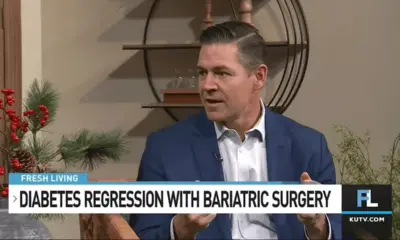Health
Trump Administration Cuts NIH Funding, Threatening Medical Research

The funding cuts implemented by the Trump administration to the National Institutes of Health (NIH) have raised significant concerns among medical researchers. These reductions threaten critical medical research initiatives that focus on diseases such as cancer and HIV, potentially impacting long-term health outcomes for millions of Americans.
Impact of Funding Cuts on Medical Research
Researchers like Dr. Kamila Naxerova, who studies cancer metastasis, and Dr. Rachael Sirianni, who is exploring new treatment methods for childhood brain cancer, highlight the urgent need for continued funding. “It’s people who will get cancer in 10, 20, or 30 years who will really pay the price for these cuts,” Dr. Naxerova stated. These professionals have dedicated their careers to ensuring that the best medical treatments are not only developed but also made accessible to the American public.
The NIH has historically played a pivotal role in funding groundbreaking research that leads to innovative medical treatments. The recent freeze on grants to universities across the country threatens to stall progress in numerous fields. Dr. David Ho, a prominent figure in HIV research, is among many scientists who express concern over how these cuts will affect ongoing and future studies. The repercussions extend beyond immediate financial savings; they pose a significant risk to public health.
While the precise financial implications of the funding cuts can be quantified, the value of potential lost discoveries remains incalculable. Medical experts warn that the impact of these reductions will not be felt for years, as emerging diseases and health challenges continue to evolve.
Future Consequences for Public Health
As funding diminishes, researchers may face increased difficulty in securing the resources needed to conduct vital experiments and clinical trials. This could delay the development of life-saving treatments and hinder advancements in understanding complex health issues.
The NIH has been instrumental in the fight against diseases that afflict millions, and the recent budgetary constraints jeopardize decades of medical progress. Without adequate support, scientists fear that the next generation of researchers may be unable to build upon existing knowledge, ultimately affecting patient care.
As the situation unfolds, it is crucial for the public to engage in discussions about the importance of sustained investment in medical research. The health of future generations depends on the decisions made today. Continued advocacy for funding will be essential in ensuring that the scientific community has the necessary resources to combat diseases effectively.
In summary, the cuts to NIH funding by the Trump administration present a significant challenge to the future of medical research in the United States. As scientists grapple with these limitations, the potential consequences for public health will echo for years to come.
-

 Technology5 months ago
Technology5 months agoDiscover the Top 10 Calorie Counting Apps of 2025
-

 Health3 months ago
Health3 months agoBella Hadid Shares Health Update After Treatment for Lyme Disease
-

 Health3 months ago
Health3 months agoErin Bates Shares Recovery Update Following Sepsis Complications
-

 Technology4 months ago
Technology4 months agoDiscover How to Reverse Image Search Using ChatGPT Effortlessly
-

 Technology1 month ago
Technology1 month agoDiscover 2025’s Top GPUs for Exceptional 4K Gaming Performance
-

 Technology3 months ago
Technology3 months agoElectric Moto Influencer Surronster Arrested in Tijuana
-

 Technology5 months ago
Technology5 months agoMeta Initiates $60B AI Data Center Expansion, Starting in Ohio
-

 Technology5 months ago
Technology5 months agoRecovering a Suspended TikTok Account: A Step-by-Step Guide
-

 Health4 months ago
Health4 months agoTested: Rab Firewall Mountain Jacket Survives Harsh Conditions
-

 Lifestyle5 months ago
Lifestyle5 months agoBelton Family Reunites After Daughter Survives Hill Country Floods
-

 Health3 months ago
Health3 months agoAnalysts Project Stronger Growth for Apple’s iPhone 17 Lineup
-

 Technology4 months ago
Technology4 months agoHarmonic Launches AI Chatbot App to Transform Mathematical Reasoning





















